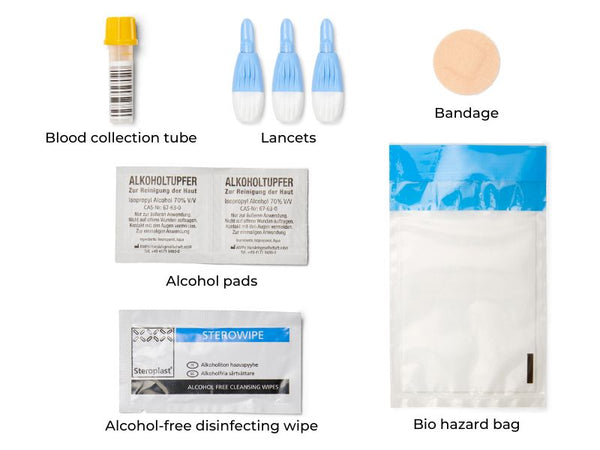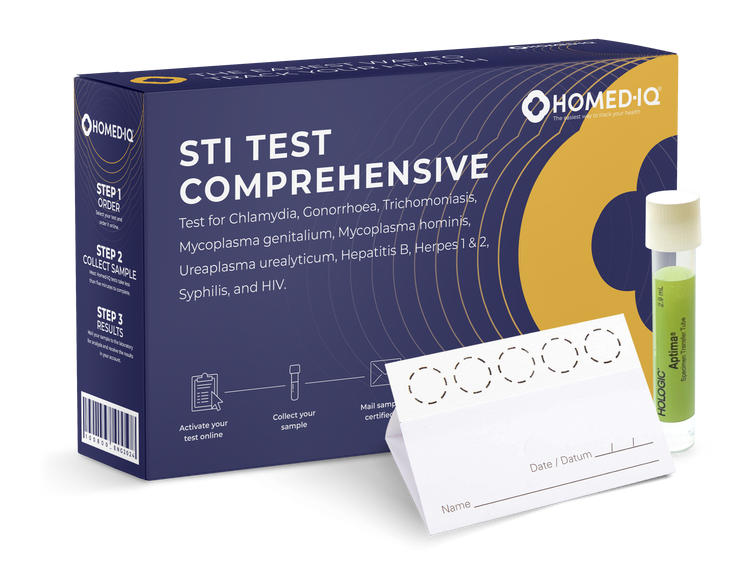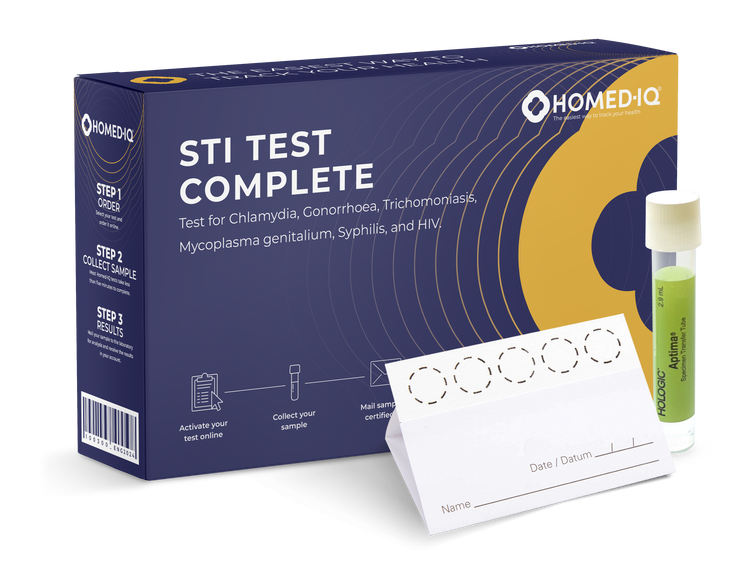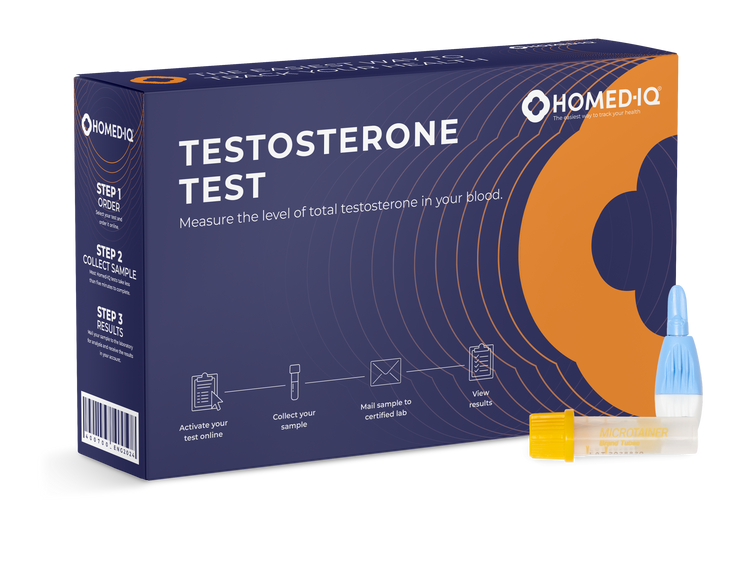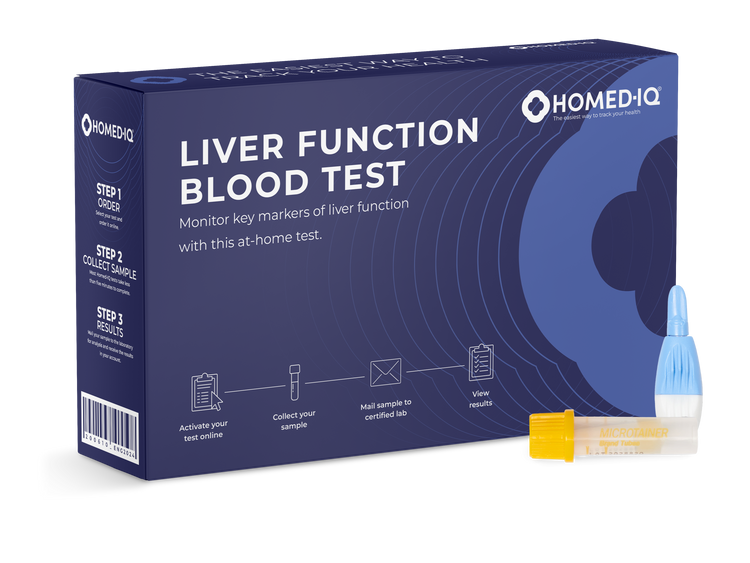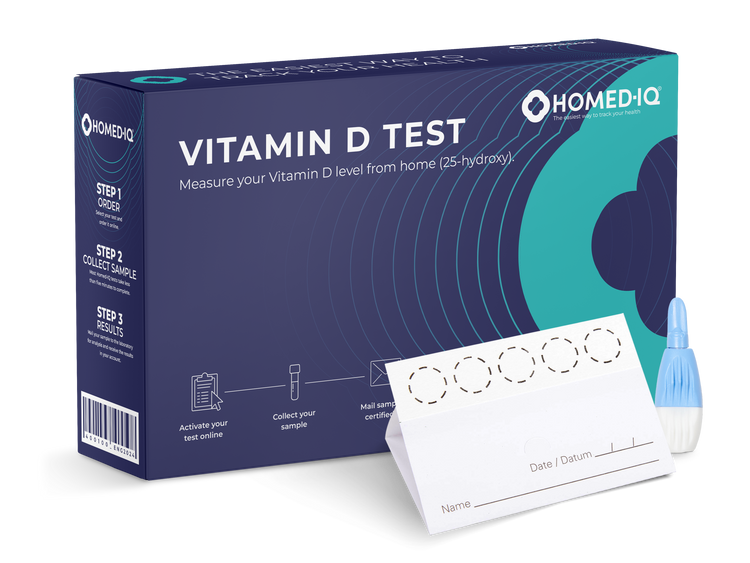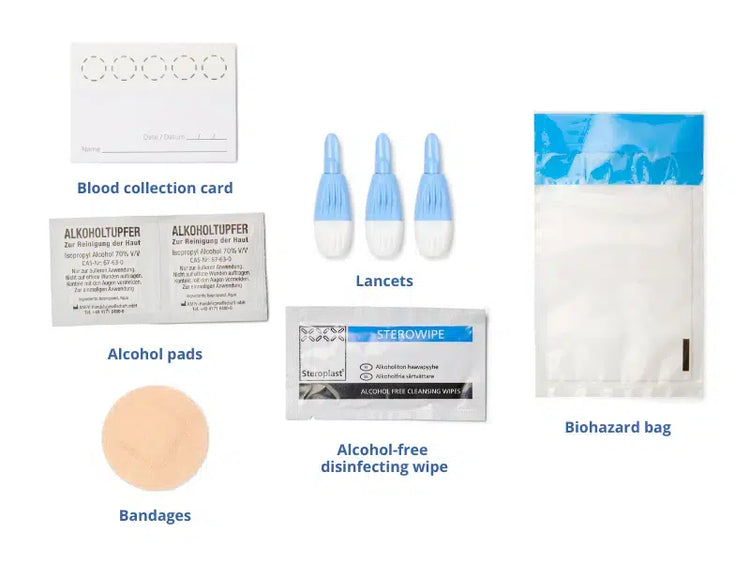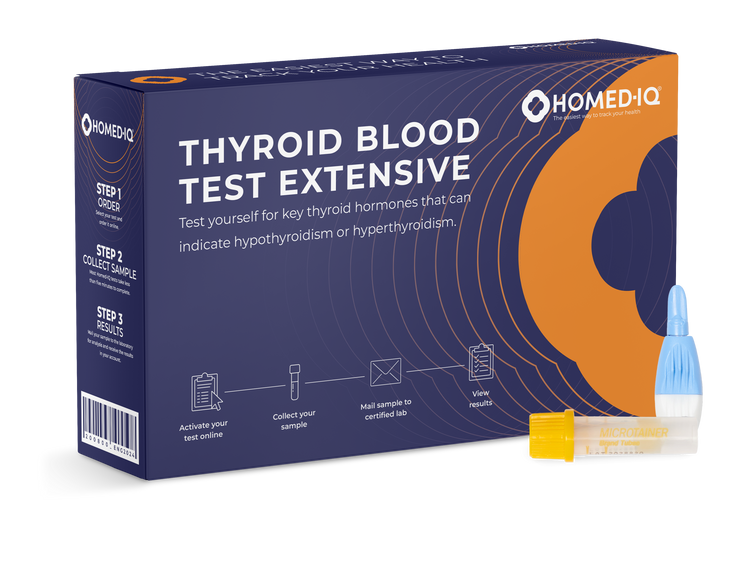Testosterone
Testosterone is a hormone that is produced by the ovaries and adrenal glands in women. Although testosterone is the primary sex hormone found in men, testosterone is important for bone density, body fat distribution, sex drive, cognitive health, and muscle mass in both men and women. A total testosterone test measures both the free testosterone and the testosterone that is attached to proteins in the blood. Women only need a small amount of testosterone, and either too much or too little can cause unpleasant physical symptoms such as fatigue, low mood, excess hair growth, acne, or lowered sexual desire. High total testosterone is associated with polycystic ovary syndrome (PCOS), a condition that can interfere with the body’s ability to ovulate and conceive. Once identified, treatment is available to address abnormal testosterone levels or PCOS.
Thyroid Stimulating Hormone (TSH)
Thyroid Stimulating Hormone (TSH) is produced in the pituitary gland in the brain. TSH regulates the thyroid’s production of hormones T3 and T4. If you have an overactive thyroid (hyperthyroidism), your thyroid produces too much T3/T4, and TSH levels will be lower than normal. If your thyroid is underactive (hypothyroidism), your thyroid produces too little T3/T4, and TSH will be higher than normal. An over- or underactive thyroid can affect ovulation, metabolism, mood, and energy levels. TSH is the most sensitive biomarker for testing thyroid function.
Luteinizing Hormone (LH)
Luteinizing Hormone (LH) is a hormone produced in the pituitary gland of men and women. In women, LH is responsible for stimulating the ovaries to release an egg around the middle of the menstrual cycle, also known as ovulation. If fertilization occurs, LH also stimulates the production of other hormones to sustain the pregnancy. Both too high and low levels of LH can stop ovulation, causing irregular periods or a lack of period altogether. High LH is also linked to polycystic ovary syndrome (PCOS), and may be tested along with other hormones in the process of making a PCOS diagnosis.
Follicle Stimulating Hormone (FSH)
Follicle stimulating hormone (FSH) is a hormone produced in the brain’s pituitary gland and plays an important role in controlling the menstrual cycle, ovulation, and the growth and maturation of eggs in the ovaries. FSH levels naturally increase with age. As the number of available eggs or ovarian reserve decreases, more FSH is needed to stimulate ovarian function.
Low FSH can indicate if the ovaries are not producing eggs (ovulating) due to problems with the pituitary gland or hypothalamus, being underweight, or undergoing rapid weight loss. High FSH can indicate polycystic ovary syndrome, diminished ovarian function, menopause, or certain genetic disorders, as the brain makes excess FSH to try and promote ovarian function.
Estradiol
Estradiol is the main form of estrogen in women and is produced by the ovaries. Estrogen is responsible for the development and maintenance of the female reproductive system during and after puberty. Estradiol levels increase during the first half of the menstrual cycle and stimulate the maturation and release of an egg, also known as ovulation. Additionally, estradiol causes the uterus lining to thicken so an egg can implant. The release of estradiol is triggered by follicle stimulating hormone. During and after menopause, less estradiol is produced, causing FSH levels to increase. Estradiol that is too high or low can cause unpleasant symptoms in women and impact ovulation.
Prolactin
Prolactin is a hormone produced by the pituitary gland in the brain that causes the breasts to grow and produce milk during pregnancy and after birth. Prolactin levels are usually high in pregnant women and new mothers, and low in non-pregnant women and men. Higher-than-normal prolactin levels in women cause irregular or absent periods, vaginal dryness, hot flashes, discharge from the breasts, and in some cases infertility. High prolactin can be caused by tumors on the pituitary gland, hormonal imbalances, certain medications, and hypothyroidism.
![Woman in professional cozy kitchen with Homed-IQ test kit]() 1
1![]() 2
2![]() 3
3![]() 4
4
